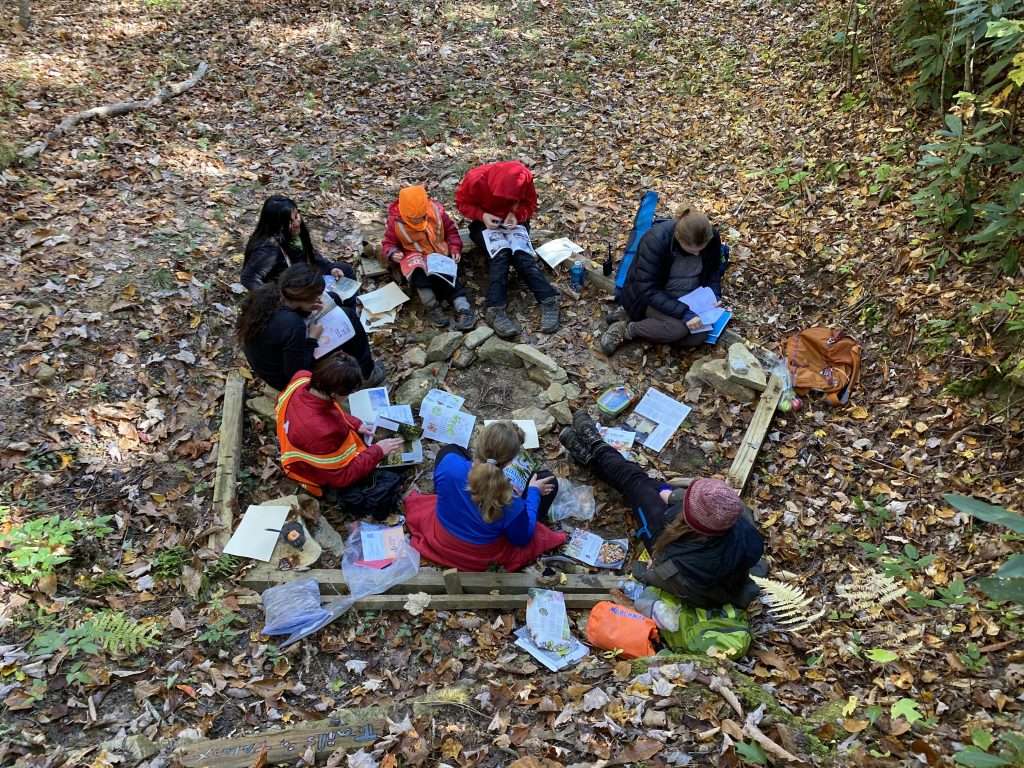Trails Carolina is a therapeutic wilderness program providing life-altering experiences to adolescents and young adults for over two decades. It is in the Blue Ridge Mountains of North Carolina, surrounded by breathtaking natural grandeur.
The Investigation Program is one of the distinguishing features of the program. This blog will delve deeply into the Trails Carolina investigation program, exploring its fundamental components, its impact on participants, and why it has become a beacon of hope for families seeking assistance for their struggling adolescents.
Why Trails Carolina Is Important?
Before delving into the particulars of the Investigation Program, it is crucial to comprehend the investigation Trails Carolina ethos. This program, founded on wilderness therapy principles, integrates outdoor adventure with therapeutic interventions to assist adolescents and young adults in overcoming various emotional and behavioral challenges.

Trails Carolina concentrates on providing participants with a safe, supportive, and structured environment where they can escape the distractions and stresses of daily life. They instead immerse themselves in nature, nurturing a profound connection with nature, themselves, and their peers.
The program believes participants can reintegrate with their inner selves by disconnecting from technology and the modern world, fostering personal development and self-discovery.
Trails Carolina caters to the specific requirements of each participant, with the Investigation Program playing a vital role in this process.
Understanding the Investigation Program
Trails Carolina’s Investigation Program guides therapy. This unique training feature helps participants understand themselves, their actions, and their relationships.
It empowers individuals to examine their past, feelings, and choices and develop the skills needed for enduring transformation.
Key Investigation Program Components
- During long outdoor expeditions, participants reflect on their history and present challenges. These expeditions include backpacking, camping, rock climbing, and rafting. The wilderness symbolizes life’s hardships and offers a unique setting for self-discovery.
- Small, close-knit groups live and work together, making community and accountability possible. Participants can discuss their thoughts and feelings, receive feedback, and improve their interpersonal skills in group therapy.
- Participants have frequent one-on-one sessions with a qualified therapist in addition to group therapy. These sessions allow for customized wilderness therapy to meet individual needs and goals.
- The program emphasizes skill development. Communication, problem-solving, decision-making, and emotional regulation are taught. Success in the outdoors and the natural world requires these talents.
- Participants set weekly personal growth and therapeutic goals. Reviewing and adjusting these goals regularly gives a sense of accomplishment and development.
The Impact of the Trails Carolina Investigation Program
Trails Carolina’s Investigation Program is more than a therapeutic wilderness experience; it catalyzes change. Numerous families have witnessed the transformative force of this program in the lives of their struggling adolescents over the years. Here is a closer examination of the effect:
Many participants arrive at Trails Carolina with low levels of self-esteem and self-worth. Through the Investigation Program’s therapeutic interventions, they better understand themselves, their strengths, and their growth areas. Consequently, their self-esteem improves, and they begin to believe in their capacity to effect positive change.
Effective communication is the foundation of all healthy relationships. The program’s emphasis on group therapy and interpersonal skills enables participants to become better communicators, enhancing relationships with their families and peers.
Adolescents and young adults frequently struggle with emotional regulation. Combined with therapy, the wilderness environment offers participants a unique opportunity to identify and regulate their emotions healthily.
Participants are instilled with a sense of personal responsibility by the Investigation Program. They learn to assume responsibility for their actions and decisions through goal-setting and accountability.
Participants acquire crucial decision-making skills through experiential learning in the wilderness. They learn to evaluate hazards, make informed decisions, and accept the repercussions of their actions.
Trails Carolina acknowledges the significance of family participation in the therapeutic process. The program incorporates family therapy sessions and seminars to assist families in mending and reestablishing their relationships.
The Trails North Carolina Wilderness Program: A Closer Look
The Wilderness Program is at the core of the Trails North Carolina experience. This essential element is designed to help participants obtain insight into themselves, their behaviors, and their relationships while equipping them with the skills and tools necessary for sustained personal development.
The program’s essential components are as follows:
- Participants embark on immersive wilderness expeditions that include backpacking, camping, mountain climbing, and river rafting, among other activities. These experiences are parallels for life’s difficulties and provide a unique setting for self-discovery and personal development.
- Small, cohesive groups of participants live and work together, nurturing a sense of community and mutual responsibility. Group therapy sessions provide participants a secure and supportive environment to express their emotions, receive constructive feedback, and develop healthier interpersonal skills.
- Regular one-on-one consultations with a licensed therapist are provided to each participant. These sessions are tailored to the specific requirements of each individual, allowing for individualized therapeutic interventions, exploration of personal history, and the establishment of attainable objectives.
- The program places a significant emphasis on talent development. Participants acquire essential life skills, such as effective communication, problem-solving, decision-making, and emotional regulation. These abilities are necessary for success in the wilderness and ordinary life.
- Participants strive towards weekly goals aligning with their personal growth and therapeutic journey. Constantly evaluating and modifying these objectives provides a sense of accomplishment and advancement.
Trails Carolina Investigation: Case Study
To illustrate the profound impact of Trails Carolina’s Investigation Program, let’s examine the fictional participant Sarah’s journey.
Sarah’s Story
Sarah, a 16-year-old fighting depression and self-destructive behavior, arrived at Trails Carolina feeling despondent. She struggled to interact with her family and lost interest in previously enjoyable activities. Sarah’s parents enrolled her in the program out of desperation to assist her.
Sarah participated in the Investigation Program’s wilderness expeditions and therapy sessions at Trails Carolina. She began to identify the underlying causes of her misery and self-destructive behavior due to these experiences. Sarah developed strong communication skills and learned to express her emotions healthily.
A wilderness solo expedition was one of the defining moments of Sarah’s voyage. Alone with her thoughts, she confronted her darkest fears and the suffering she had carried for years. Sarah emerged from the solo with a newfound sense of resilience and self-awareness, aided by her therapist and group.
Sarah developed a sense of accomplishment as she progressed through the program by setting and achieving weekly objectives. In addition, she gained valuable life skills that would be helpful.
Sarah transformed into a self-assured, emotionally resilient young woman by the time she had finished the program; her relationship with her family had been repaired, and they had learned to communicate candidly and support one another. Sarah returned home with a sense of purpose and the tools necessary to navigate life’s challenges successfully.
Sarah had the opportunity to revise her story and create a brighter future for herself, thanks to the Investigation Program.
Conclusion
The Trails Carolina investigation program exemplifies the effectiveness of wilderness therapy and therapeutic interventions in assisting adolescents and young adults to surmount emotional and behavioral challenges. Participants like Sarah can endure profound personal transformations through wilderness expeditions, group therapy, individual counseling, skill development, and goal setting.
While this blog has provided a comprehensive overview of the program, it is essential to remember that Trails Carolina’s approach is highly individualized, as each participant’s journey is unique. The program’s success stems from its dedication to empowering participants to live healthier, happier lives through a supportive and transformative experience.
Trails Carolina’s Investigation Program offers families seeking assistance for their struggling adolescents hope, healing, and the promise of a brighter future amidst the natural splendor of North Carolina.
FAQs
What is the issue with Trails Carolina?
Trails Carolina has been the site of multiple alarming allegations of abuse and maltreatment by former participants and their families. During the program, these individuals claim they were subjected to various forms of abuse, ranging from emotional abuse and neglect to physical violence.
How many wilderness therapy programs do the United States offer?
Because accreditation is not necessary in all countries, many programs that call themselves “wilderness therapy” may not necessarily meet these qualifications. One estimate places the number of wilderness treatment programs in the United States somewhere around 26, but a prior survey found that 65 wilderness programs labeled themselves as such.
What is the system of literary trails in North Carolina?
Literary Trails of North Carolina is a comprehensive guide to the authors and literature of North Carolina that was written and published with the support of the North Carolina Arts Council. The focus is comprised of three volumes. These books lead readers to the historic locales in North Carolina where Tar Heel authors have lived and worked.
What is nature therapy used for?
According to research, spending time in natural surroundings positively affects one’s mental health. For example, there is a correlation between spending time in green spaces and lower levels of anxiety, tension, and symptoms of sadness.

